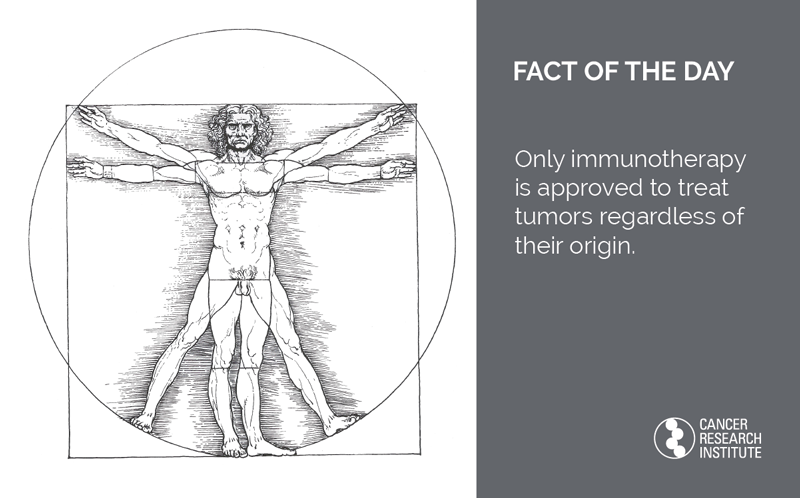
Only immunotherapy is approved to treat tumors regardless of their origin.
On May 23, 2017, a checkpoint immunotherapy, the anti-PD-1 pembrolizumab, became the first cancer treatment (of any type) to be approved by the FDA without any organ-specific strings attached.
Instead, this immunotherapy's approval depends on the stability of a tumor’s genome.
Now, any adult or child with a metastatic cancer that has become genetically unstable (categorized by the MSI-hi or dMMR biomarker) can receive this immunotherapy, regardless of their tumor’s physical origin, if other available treatments aren’t working.
In the clinical trial that led to this approval, patients with fifteen different tumor types were represented and overall nearly 40% of patients responded. These tumors likely respond well to immunotherapy because their high levels of DNA mutations produce abnormal proteins (neo-antigens) that the immune system can target due to their “foreign” appearance.
Oftentimes, immune cells have already even mounted a response against a tumor’s neo-antigens, but are exhausted via the PD-1/PD-L1 pathway. In that case, a checkpoint immunotherapy that blocks the PD-1/PD-L1 pathways can tilt the scales in the immune system’s (and patient’s) favor.
Image credit: Creative Commons (via Hans Bernhard)